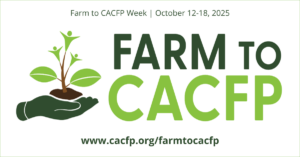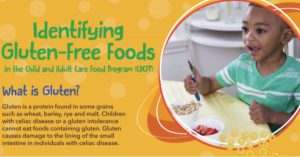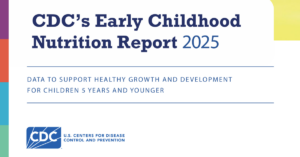Posts Tagged ‘Early Care and Education’
Coming Up! Farm to CACFP Events
Farm to CACFP connects providers to local food producers with the objectives of serving locally-grown foods and providing nutrition education. Check out these upcoming events at NCA!
Read MoreReducing Screen Time
Unsurprisingly, people spend hours each day in front of screens, whether on computers, TVs, tablets, gaming systems, or smartphones. While media use can be a valuable source of learning and entertainment, excessive screen time can have negative effects. Our partners at the Institute of Child Nutrition explore the risks of too much screen time, provide recommendations, tips for limiting usage, and sample policy ideas for programs.
Read MoreUSDA Rescinds Guidance on Interpretation of Discrimination Based on Sex
The USDA released a memorandum rescinding 2022 guidance regarding the interpretation of discrimination based on “sex.” The 2022 guidance redefined the definition of “sex” to include gender identity and sexual orientation. Therefore, the rescission of this guidance will revert USDA’s definition back to its previous interpretation and omit mention of gender identity and sexual orientation.
Read MoreNutrition Myths
Our partners at the Dr. Yum Project tackle some of the most common and confusing nutrition myths for you and your family.
Read MoreJuly Virtual Events
Get a rundown on all things happening at NCA this month!
Read MoreCooking Fun for Families
Preparing their own food can help children and teens learn about nutrition, practice meal planning, get to know other cultures, and build basic math skills. It also encourages creativity and independence. Our partners at Alliance for a Healthier Generation have resources to help families cook safely and confidently with these kid-friendly cooking tips!
Read MoreOff-Site Monitoring in FY25
USDA has the authority to waive statutory or regulatory program requirements for Child Nutrition Programs. State Agencies can submit a 12(l) waiver application to USDA in order to allow for flexibilities, including off-site monitoring, in their state. In Fiscal Year 2025, at least nine States have applied and been approved for an off-site monitoring waiver.
Read MoreIdentifying Gluten-Free Foods
Learn how to identify gluten-free foods and get a yummy gluten-free snack recipe.
Read MoreFamilies Demand Child Care Investment
A recent study by our partners at Child Care Aware® of America reveals that parents across the nation are struggling to find affordable, high-quality child care. The survey shows that parents are piecing together multiple care arrangements and facing challenges balancing work and caregiving.
Read MoreHelping Kids Grow Strong: CDC’s 2025 Nutrition Report
The CDC’s 2025 Early Childhood Nutrition Report gives us a big-picture look at how young children in the U.S. are eating and growing. It focuses on kids from birth to age 5 and shares important facts about breastfeeding, starting solid foods, eating healthy and how states support good nutrition.
Read More









